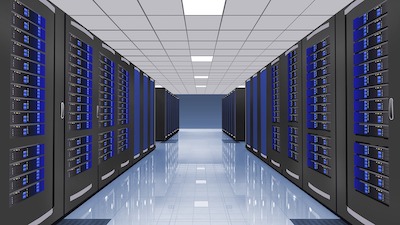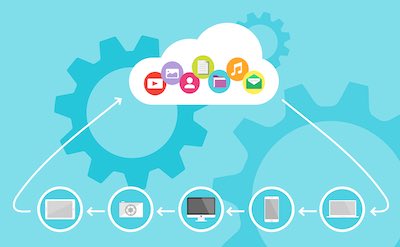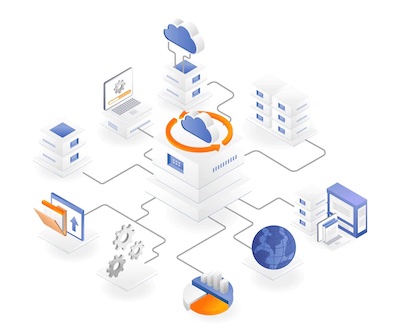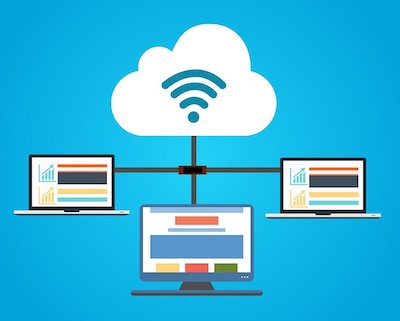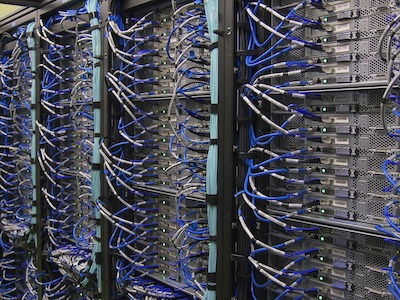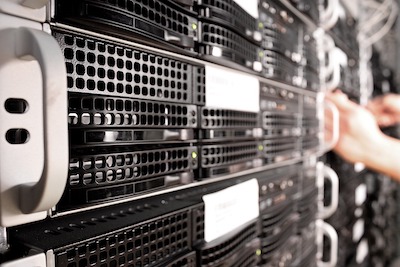 The cloud has been a huge game-changer in almost every industry. From software developers to IT departments and end users, everyone has found ways to take advantage of the cloud and its massive potential. Cloud services have allowed businesses to cut costs and devote more resources to their core activities. There are many different kinds of cloud services available. Virtual machines, for example, are used by developers to test their apps on different operating systems before releasing them to the public. Platform as a service is used for creating websites and other online services with minimal effort and maintenance required afterward. Cloud servers are another type of cloud service that's become increasingly important over the last few years. They have numerous uses in various industries, from game development to e-commerce sites. In this article, we will explain what they are and how they work, as well as some examples of how they are used in practice.
The cloud has been a huge game-changer in almost every industry. From software developers to IT departments and end users, everyone has found ways to take advantage of the cloud and its massive potential. Cloud services have allowed businesses to cut costs and devote more resources to their core activities. There are many different kinds of cloud services available. Virtual machines, for example, are used by developers to test their apps on different operating systems before releasing them to the public. Platform as a service is used for creating websites and other online services with minimal effort and maintenance required afterward. Cloud servers are another type of cloud service that's become increasingly important over the last few years. They have numerous uses in various industries, from game development to e-commerce sites. In this article, we will explain what they are and how they work, as well as some examples of how they are used in practice.
What is a Cloud Server?
A cloud server is a virtual instance of a physical server that’s hosted remotely. It can be thought of as a kind of software-defined server that’s accessible through the internet. This means users can connect to their servers through a web browser or API call, but they don’t need to deal with setting up, managing, or maintaining the servers themselves. Instead, they pay a service provider to house their servers and provide a connection between the servers and the outside world. These cloud servers are virtual machines that can be scaled up or down based on their owners’ needs. Users can choose their preferred location and operating system when they set up their servers. This means that services that require high availability and/or redundancy (e.g. online retail stores) can be hosted in several locations at once to prevent downtime in the event of an emergency.
How Do Cloud Servers Work?
Cloud servers work in a very similar way to physical ones. They are virtual machines that live on a remote computer and are accessible through the internet. The main difference is that cloud servers don’t require any physical hardware. They’re entirely software-defined and can be run on almost any server with a powerful enough CPU. Hosting companies maintain large data centers in different geographical locations. These data centers have high-quality hardware and robust internet connections, as well as redundant power supply systems and cooling systems. Hosting providers house their clients’ virtual machines on the same hardware used by their systems, which are usually very powerful. This allows them to provide a very high level of performance to their customers.
What Are the Benefits of Cloud Servers?
Cloud servers have a lot of benefits that make them ideal for many different kinds of businesses. These benefits stem from the fact that cloud hosting companies maintain the hardware and provide the necessary connections for their clients’ virtual machines. This means that companies don’t have to buy expensive hardware, employ people with the necessary expertise to maintain it, or risk encountering issues caused by faulty equipment. It also means that they don’t have to deal with setting up and maintaining their data centers. Instead, they can focus on their core business activities and outsource the rest to their hosting provider. This saves them a lot of time and money and allows them to scale their operations very quickly as needed.
Cloud Server Downsides
Although cloud servers have many benefits, they also have a few downsides. The most obvious one is that hosting companies have control over your virtual machines. This means that they can shut down your servers if you go over the agreed-upon terms of service. In many cases, you can request that your servers be shut down manually if you want to end your service. The other main disadvantage is that performance can vary from one provider to another. Some companies may host their clients’ virtual machines on low-quality equipment, for example. This means that you may occasionally experience slowdowns that are out of your control.
Final Words
Cloud servers are a very useful service for developers and businesses alike. The centralized hosting provided by hosting companies allows users to focus on their core activities while offloading the rest to experienced professionals. Unfortunately, choosing a reliable hosting provider can be difficult, especially if you’re new to the industry. Make sure to read reviews and speak with fellow business owners to find out which companies are worth your time and which ones aren’t.

